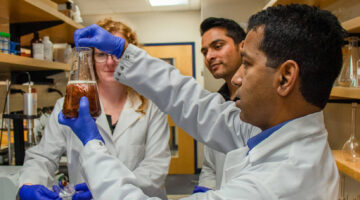Celebratory launch of UMaine Arctic to be held Nov. 14
The University of Maine invites community members and interested collaborators to attend the celebratory launch event of UMaine Arctic on Thursday, Nov. 14 at the Buchanan Alumni House. The reception will feature a poster session, exhibiting activities by faculty and regional partners in the Arctic and in Arctic-impacted regions, to present UMaine activity in the […]
Read more


